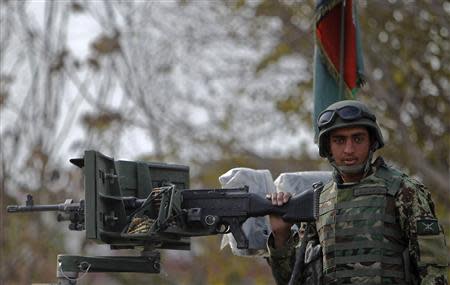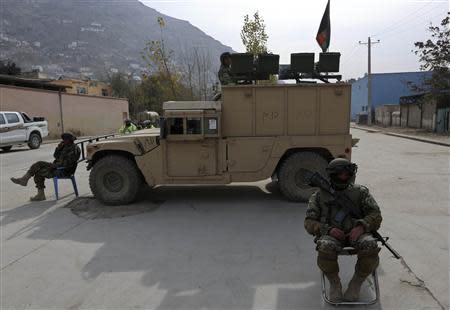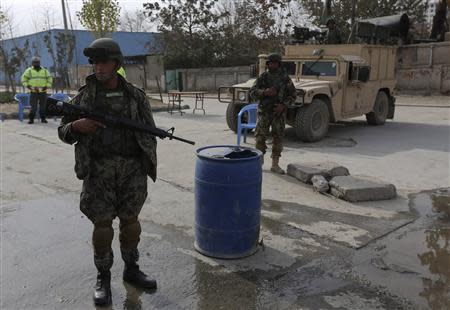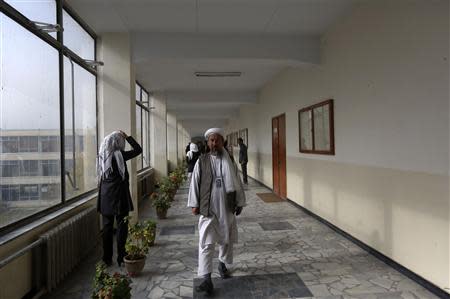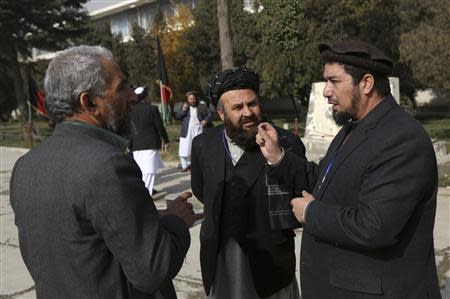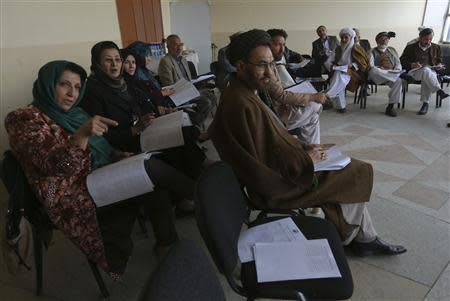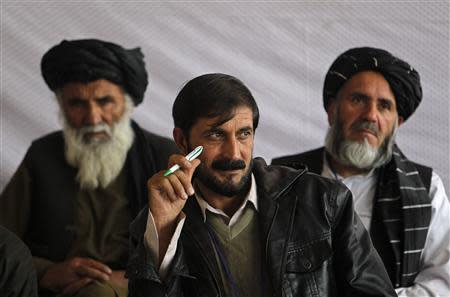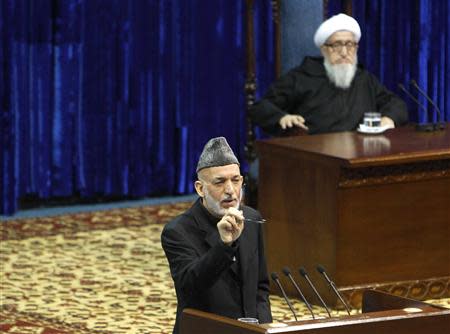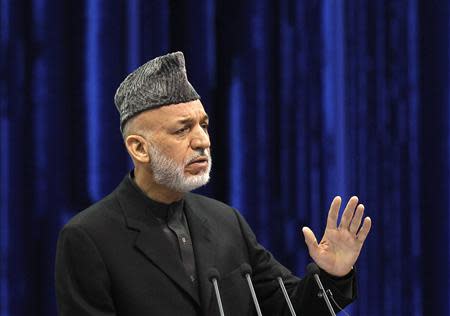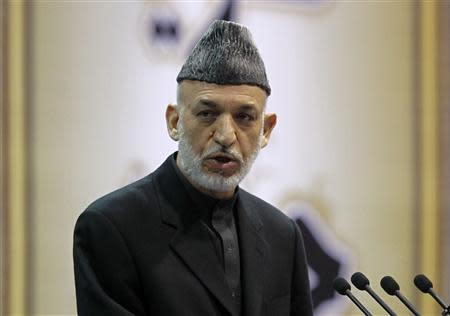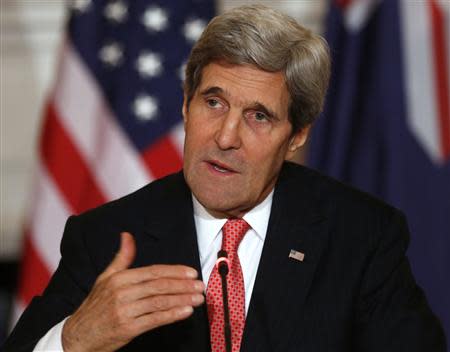Karzai to advise delaying U.S.-Afghan pact in closing speech: spokesman
By Jessica Donati KABUL (Reuters) - Afghan President Hamid Karzai will call for a security pact with the United States to be delayed until after an April election when he gives a closing speech to a grand assembly that will decide on the deal, his spokesman said on Saturday. With most foreign forces preparing to leave Afghanistan next year, the Bilateral Security Agreement with the United States will help define the terms under which U.S. troops stay on. Without an accord, the United States could pull out all its troops at the end of 2014 and leave Afghan forces to fight the Taliban insurgency on their own. The United States has repeatedly said it cannot wait until the April election for Afghan approval of the pact and it must be signed by the end of this year. But Karzai's spokesman, Aimal Faizi, said the president would call for a delay in approval of the pact when he addresses a grand council of tribal elders and political leaders in Kabul on Sunday, when the meeting is due to end. "On the last day of the Loya Jirga, in his speech, the president will explain in full details his reasons to the people, why he wants the signing of this document to be after the elections," Faizi told Reuters. The dispute over the timing of the pact has overshadowed the grand assembly, known as a Loya Jirga. Delegates are widely expected to reflect Karzai's wishes in their conclusion. Karzai wanted the United States to fulfill three conditions, including helping with next year's election, before the deal is signed, Faizi said. He also wanted peace and security to prevail and help with peace talks with the Taliban, he said. In his opening speech to the assembly, Karzai said the deal was in the country's best interest but he then threw it into doubt with the suggestion it should be signed after April. The U.S. Secretary of State John Kerry spoke to Karzai by telephone on Friday night and stressed the deal was needed promptly so Afghanistan's allies could begin preparations for a post-2014 military presence, Faizi said. Karzai, for his part, reiterated his intention to wait until after the election, in which he is not eligible to stand. Karzai has led Afghanistan since U.S.-led forces overthrew the Taliban in the weeks after the September 11, 2001, attacks on the United States. "NO MORE OPERATIONS ON HOMES" While backed by the United States, Karzai has often had a tense relationship with the U.S. government. U.S. officials express frustration with his frequent about-faces and occasional denunciations of the U.S.-led NATO force helping Afghanistan fight the Taliban. U.S. missteps, including the killing of Afghan civilians, have put Karzai in a difficult political spot. In his conversation with Kerry, Karzai also complained about the killing of two Afghans by U.S. special forces in the eastern province of Nangarhar on Tuesday, Faizi said. "President Karzai insisted on the Afghanistan stance that no more military operations should be conducted on Afghan homes," Faizi said. The NATO-led force in Afghanistan confirmed an operation had taken place, but said those killed were insurgents. Raids on Afghan homes by U.S. forces have been one of the thorniest issues holding up the deal, which the two governments have wrangled over for about a year. Karzai eventually conceded U.S. troops be allowed into Afghan homes under exceptional circumstances. Another important concession won by the United States was immunity for its troops from Afghan prosecution. Karzai called for the Loya Jirga to muster public support for a pact regarded by many Afghans with contempt. The Taliban, fighting to expel foreign forces and impose their vision of Islamist rule, have condemned the Loya Jirga as a farce. (Additional reporting by Mirwais Harooni, Hamid Shalizi and Abdul Aziz ibrahimi; Editing by Robert Birsel)
